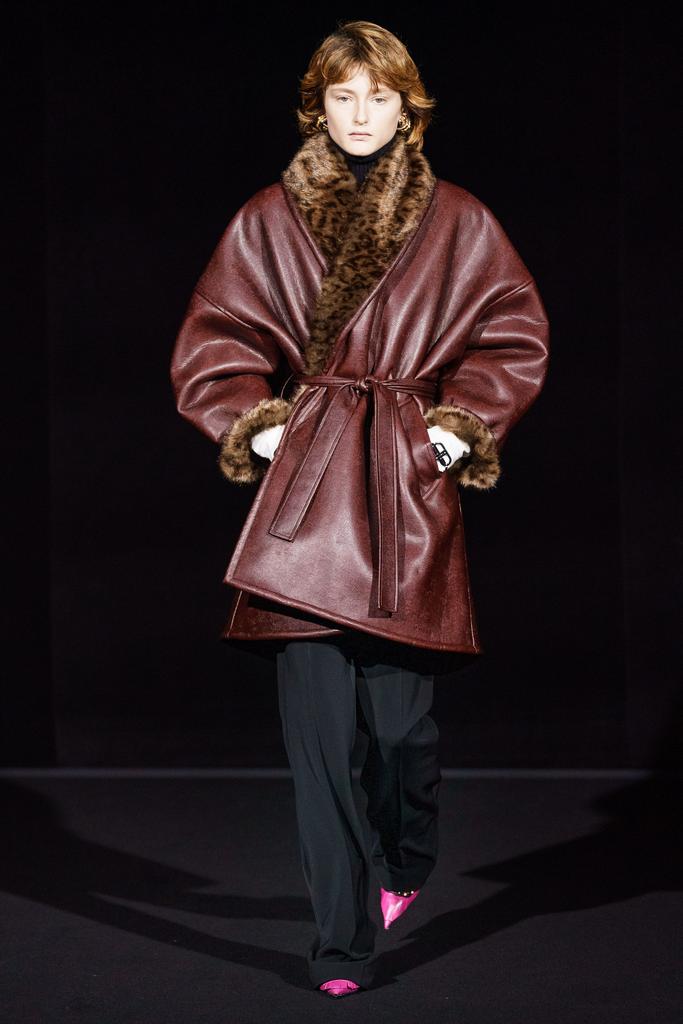These Brands Officially Renounce Animal Fur<
modeWhile more and more brands are committing against the use of animal fur, here is an overview of these responsible approaches.
By Marie Courtois and Marthe Mabille
Small revolution in the world of fashion, whether for the protection of the planet or animals, more and more brands are betting on fake fur. After Stella McCartney, who has never used real, Vivienne Westwood, Gucci, Chanel, Prada, or Alexander McQueen and Balenciaga more recently, the refusal to use animal fur tends to become more democratic. A commitment in accordance with public opinion since according to an IFOP survey carried out in 2021, 90% of French people would oppose its trade. A way to show that the fashion sector is gradually changing its practices without being less desirable.
Moncler
At the start of 2022, Moncler announces that it wants to gradually remove all animal fur from its lines. The brand will stop its supplies this year, and the last collection to present fur will thus be fall-winter 2023-2024. A decision in accordance with the brand's desire to move towards increasingly responsible practices, but also with the fashion ecosystem in general since we all know how essential these concerns are, including the industry. In order to move forward in this direction, the brand will be supported by the Italian animal defense organization LAV, which also represents the Fur Free Alliance. Through its latest Born to Protect collection, Moncler has already exercised itself in the requirements of sustainability, in particular by choosing materials such as nylon and recycled polyester for its winter jackets. What predict a more responsible fashion, even for specialized and more technical labels.
Giorgio Armani
It is the turn of the Giorgio Armani group to announce its commitments in terms of fur, in particular by stopping the use of angora on all of its lines, starting from the fall-winter 2022-2023 season. Since 2016 and the agreement with the Fur Free Alliance, Giorgio Armani has increasingly expressed his desire to stop using animal fur. The house notably signed the Fashion Pact presented at the G7 in 2019. Now, the adoption of this measure marks a new step forward on these essential issues of the environment and animal well-being.
Part II // how to pack a painting 101 ☕️ Gotta protect my beloved paintings https://t.co/MmZiIqQjkL
— Eve Mon Oct 19 15:38:52 +0000 2020
Balenciaga

Already in 2019, Balenciaga unveiled during the 2019 edition of the Vogue Paris Fashion Festival, a first series of measures taken in favor of the environment. A commitment that is confirmed since Kering, the group to which the French brand belongs, announced that Balenciaga would no longer use animal fur. Note that the house no longer used this material since the arrival of Demna Gvasalia as artistic director in 2015.
Alexander McQueen
Another house belonging to Kering which is withdrawing from animal fur: Alexander McQueen. This decision is in line with the commitments of Sarah Burton, artistic director of the British brand, for more responsible and ethical fashion. In fact, the designer also presents collections made from recycled materials and offers fashion school students unused fabrics from the house's archives.
This Friday, September 24, all the houses of the Kering group are committed to renouncing fur in their collections.After Gucci in 2017, Balenciaga and Alexander McQueen, it seems the time has come for Bottega Veneta, Brioni and Saint Laurent. The reason ? It is all the houses of the Kering group which decide to take this step until the total renunciation of the use of fur. Announced in September 2021, this decision will be effective from the fall-winter 2022 collections. highest environmental and social. In terms of animal welfare in particular, our Group has always demonstrated its desire to develop practices within its supply chain and throughout the sector. The time has come to take the next step by ending the use of fur in all our collections. The world has changed, our customers have evolved and luxury must naturally adapt to it,” said François-Henri Pinault, Chairman and CEO of Kering, in a press release. The group had notably published its standards related to animal welfare in 2019.
Valentino
For its part, the Italian brand Valentino ensures that it will no longer use real fur from 2022 either. environment for the next collections” explained Jacopo Venturini, general manager of the brand. In this way, Valentino will stop producing real fur at the end of 2021 in order to favor new technologies.
Canada Goose
Canada Goose has in turn announced that it will end the use of animal fur in its products by the end of 2022 at the latest. , to achieve net zero carbon emissions by 2025.
Oscar de la Renta
Another emblematic house to commit to a more responsible approach: Oscar de la Renta, which has just announced that it will be giving up animal fur by the end of October. A particularly important decision for the American brand founded in 1963, which has enjoyed success thanks to its classic and chic wardrobe with noble materials such as fur or even handmade embroidery.
More fashion on Vogue.fr: Faux fur: 8 eco-responsible brands to knowFashion and the ocean: much more than a trend, a call to actionThis bag is the fashion investment of spring… And it's eco-responsible
Even more Vogue on YouTube:


 Tags:
Tags: Prev
Prev







